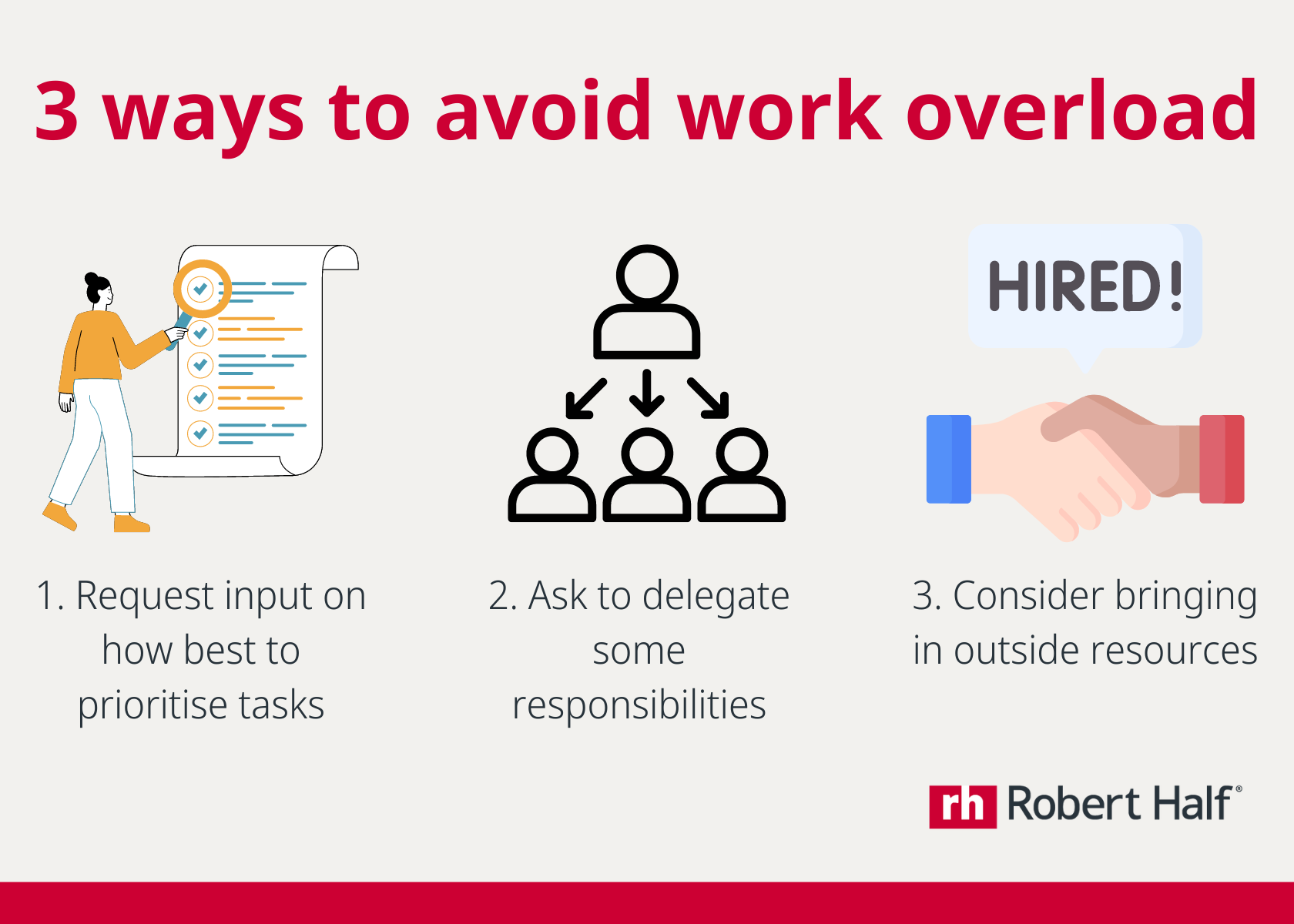3. Consider bringing in outside resources
If, after discussing workload demands with your manager, it becomes clear that no one in-house is available to support you — whether it’s because they lack time or don’t possess the right skills or expertise — you may want to consider engaging temporary or contract professionals.
Leading companies often hire interim employees to prevent core members of their teams from suffering from workload overload. If you’re worried about losing face by asking for help, remember that missing a major deadline will be more damaging, both to your psyche and to your team’s results.
The best thing to do when your work overload balloons past the point where you can manage it is to put the business first and ask your boss to help you find practical solutions that will keep projects on track — and you performing optimally.
Frequently Asked Questions (FAQs)
How do I prioritise tasks when I have too much to do?
List everything you need to do
Assess each task based on its urgency and importance
Focus on completing urgent and important tasks first
Delegate what you can, and postpone or eliminate less crucial tasks.
Review and adjust your priorities as needed
What time management techniques can help with work overload?
Techniques like the Eisenhower Matrix to categorize tasks based on urgency and importance
Time blocking
Pomodoro technique
Delegation
Saying no
How can I say no to additional work when I'm already overwhelmed?
Be honest and direct with your manager, explaining that you're currently at capacity and taking on more would compromise the quality of your existing work. Offer alternative solutions, like suggesting a colleague who might be available or proposing a revised timeline.
How do I deal with stress caused by work overload?
Prioritise your tasks and set realistic deadlines
Learn to delegate when possible and don't hesitate to say no
Make time for breaks and self-care activities to recharge
Consider talking to your supervisor about your workload or seeking support from a mental health professional
What are the signs of burnout, and how can I prevent it?
Burnout often manifests through exhaustion, cynicism, and a decreased sense of accomplishment. You might feel constantly tired, detached from your work, or doubt your abilities. To prevent burnout, practice self-care, set boundaries, and delegate tasks when possible. If you notice these signs, talk to your manager or a healthcare professional.

